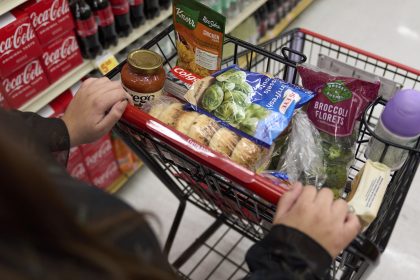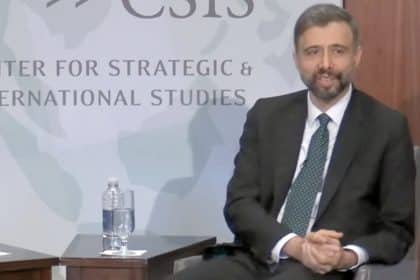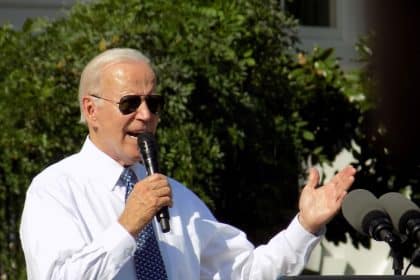Congress Seeks More Food Aid to Veterans Impoverished by Pandemic

OCEANSIDE, Calif. — Anahid Brakke talked about the financial struggles facing veterans during a congressional field hearing Monday in California on how to end hunger among people who served in the U.S. military.
Near the headquarters of her organization, called San Diego Hunger Coalition, a person earning $15 an hour could expect to spend $2,400 in rent for a studio apartment. Often, they are left with only $200 a month for food, transportation, medical care and other expenses.
“Hands down, the best way to help veterans is to fix the safety net for all people,” Brakke, president of San Diego Hunger Coalition, told a House Veterans’ Affairs subcommittee.
The urgency has grown in the past two years, she said.
“We all know that the COVID-19 pandemic made food insecurity worse,” Brakke said.
Solutions so far have included increasing grocery deliveries to needy veterans through a Veterans Affairs “food empowerment program.”
The VA also screens veterans for hunger through a questionnaire when they seek medical care. They are referred to social workers for help applying for Supplemental Nutrition Assistance Program benefits and advice on proper diet if they are found to be in need.
Congress is considering proposals that would transcend the pandemic, such as by establishing a permanent Office of Food Insecurity within the VA. It would seek to identify more veterans who need help and to increase their food benefits.
One of the problems so far has been pride, Brakke said.
“I think they’re probably the most proud and the most ashamed,” Brakke said about veterans. “How can you ask our veterans to swallow their pride and go ask for help?”
Another obstacle is figuring out the extent of the problem.
The U.S. Department of Agriculture estimates 11.1% of veterans are food insecure. The VA puts the figure at 7.4%.
“There are gaps and inconsistencies in the data,” said Rep. Mike Levin, D-Calif., chairman of the Subcommittee on Economic Opportunity. “That requires our continued attention.”
The subcommittee held the hearing in Oceanside, California, because of the large number of servicemembers and veterans who reside in the area.
Sixteen military installations are located nearby. About 110,000 veterans live in the San Diego, California, area.
Like many proposals, the willingness by lawmakers to help needy persons is strong but the finances are not always available.
Rep. Barry Moore, R-Ala., said he would like “to ensure that no one who has served our country should go hungry.”
He linked hunger to mental health problems that can include suicide and depression.
“We also need to do this in an intelligent manner for American taxpayers as well,” Moore said about additional outreach programs to ease hunger among veterans.
Christine Going, the VA’s National Food Security Program coordinator, said her agency is expanding food pantries at VA facilities nationwide. The program is on track to double food deliveries this year.
Funding for the assistance is coming from the Coronavirus Aid, Relief, and Economic Security Act, a $2.2 trillion economic stimulus bill passed by Congress in 2020.
The CARES Act also provided funding to the Department of Veterans Affairs to financially assist veterans who became unemployed during the COVID-19 crisis. The funds helped veterans struggling to pay rent or facing homelessness.
She called the CARES Act “incredibly helpful” for veterans.
She added, “One food insecure veteran is one too many.”
Tom can be reached at [email protected] and @TomRamstack
























